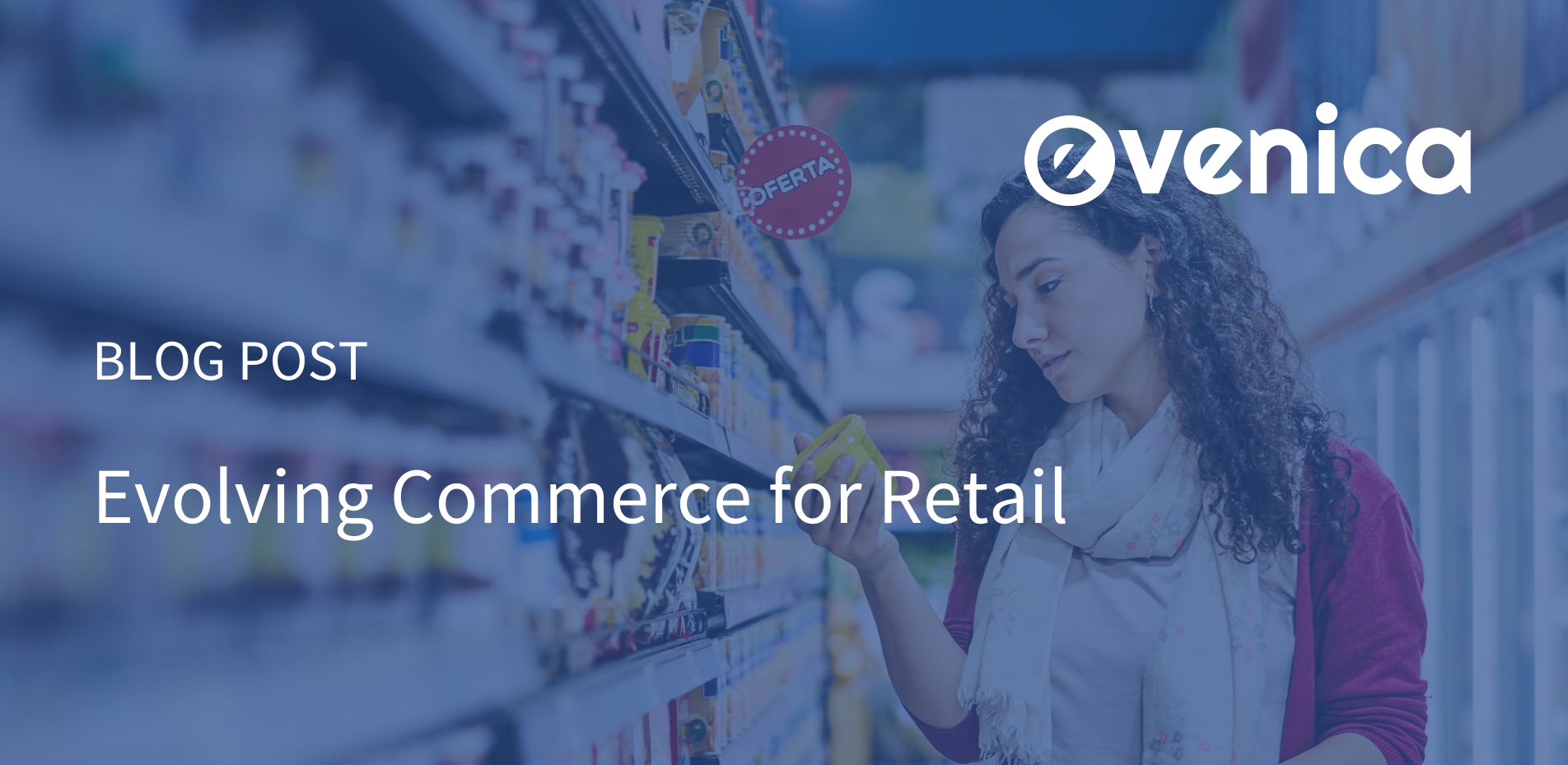
Despite facing challenges from the pandemic, retail sales are still growing year-over-year, and consumers are looking for shopping experiences that delight them – both online and in-store. It’s an exciting time to be a retailer of any kind, but it’s more important than ever to have the differentiate yourself with the right tools to use insights to provide your customers with outstanding service.
As consumers continue to shop online, or at least use digital channels to self-educate, it becomes important for retailers to consider how to utilize both in-person and digital channels to deliver a superior customer experience and maximize sales. The best way to do this is with a strategic commerce solution, but knowing what technology to adopt can be challenging.
Microsoft’s Cloud for Retail is a suite of solutions designed for retailers that help them optimize in-store processes while competing online. It offers retailers many interesting options, including the use of store-level and customer-level analytics to personalize the buying process, the ability to develop custom apps, and the technology to integrate CRM, ERP, and e-commerce functionality in one system.
Leveraging Data & Insights
Jennifer walked into the store to pick up her order, her gaze lingering on the mannequins – all dressed in various outfits, turtleneck sweaters the only common link between them.
The young woman working offered Jennifer a smile as she folded some clothes. “Like the turtlenecks? Apparently they’re the thing in this city.”
Jennifer blinked. “Like our city, specifically?”
The associate nodded. “Yeah. Every fall for the last three years. Anyway, how can I help you?”
Although store-level data already exists within your company, Cloud for Retail puts everything in one place and applies machine learning to it, providing you with helpful reporting and unexpected insight. Trends between retail locations, from productivity to sales data, can be tracked and used during decision-making, and can even filter back into strategy at the store level.
Data on individual customers also becomes easily accessible with a strategic e-commerce solution based on Microsoft technology. Offering end customers the ability to create accounts, keep wish lists, and browse products online gives you valuable data about their preferences and interests that can be leveraged when they visit retail locations, or in targeted digital marketing activations driven by artificial intelligence. This deepens your relationship with your customers, creates upsell opportunities, and increases both sales and loyalty.
Custom Apps
“Alright, everyone,” the trainer said. “Today, we’re going to be rolling out our new personal shopper app!”
The trainer held up a tablet. “Customers are now able to book personal shopping appointments with us, and we’ll be using these tablets to video chat and show items around the store in real time.”
One aspect of the Microsoft stack, the Power Platform, provides users with the opportunity to build their own apps which can then be integrated with Dynamics 365 Commerce for transaction capabilties. This means that if you have a particular process that you would like to digitize and integrate with the rest of your system, you can do so. In some cases, you may even be able to use a low-code or no-code approach, minimizing development costs.
For organizations without the in-house capability to develop apps on their own, finding a commerce partner who specializes in the Microsoft stack will be an important part of their evolution. Having a reliable partner who can map your needs to Microsoft technology, develop a solution roadmap with you, and make your vision a reality ensures a coherent and streamlined solution that will provide you with valuable data and your customers with a pleasant buying experience.
Full Integration
The more complex a business is, the more it will benefit from the kinds of integrations possible on the Microsoft stack. Being able to centralize data and link ERP, CRM, and ecommerce to each other creates a more efficient data-driven organization.
For example, integrating your ERP with a custom ecommerce solution allows you to display your inventory in real-time online, and also allows you to automatically pause orders for items with no inventory. Having ecommerce integrated with your CRM, however, will let you set automatic reminders to follow up with those customers once inventory is back in stock, as their viewing habits will be logged in your system. All of this supports a smarter way of doing business.
Delivering Exceptional Customer Experience
Evenica has developed integrated e-commerce solutions for retailers in many industries, helping them deliver sophisticated ecommerce experiences across digital and traditional channels. We specialize in offering custom Microsoft solutions and offer our own e4Commerce architecture.
